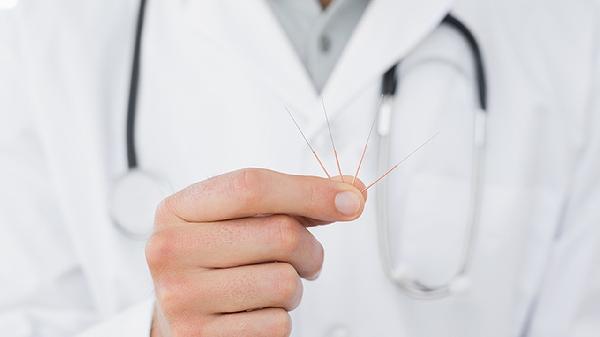Acupuncture services can be found in various healthcare settings, including specialized clinics, wellness centers, and even some conventional medical practices. To locate a qualified acupuncturist nearby, you can start by searching online directories, asking for recommendations from healthcare providers, or checking local wellness centers and holistic health practices.

Understanding Acupuncture and Its Benefits
Acupuncture is a traditional Chinese medicine practice that involves inserting thin needles into specific points on the body to promote healing and relieve pain. It is commonly used to treat conditions such as chronic pain, stress, migraines, and digestive issues. Research has shown that acupuncture can stimulate the nervous system, release endorphins, and improve blood flow, making it a valuable complementary therapy for many individuals.
How to Find a Qualified Acupuncturist
When searching for acupuncture services, it’s essential to find a licensed and experienced practitioner. In the United States, acupuncturists are typically licensed by state boards and may hold certifications from organizations like the National Certification Commission for Acupuncture and Oriental Medicine (NCCAOM). Look for practitioners who have completed extensive training and have positive reviews from previous clients.
Online Directories and Search Tools
One of the easiest ways to find acupuncture services nearby is by using online directories. Websites like Yelp, Healthgrades, and the NCCAOM’s practitioner directory allow you to search for acupuncturists by location, specialty, and patient ratings. These platforms often include detailed profiles, reviews, and contact information, making it easier to compare options and choose a practitioner who meets your needs.
Asking for Recommendations
Another effective way to find acupuncture services is by asking for recommendations from trusted sources. Your primary care physician, physical therapist, or chiropractor may be able to refer you to a reputable acupuncturist in your area. Additionally, friends, family members, or coworkers who have had positive experiences with acupuncture can provide valuable insights and suggestions.
Exploring Local Wellness Centers
Many wellness centers and holistic health practices offer acupuncture as part of their services. These centers often focus on integrative approaches to health, combining acupuncture with other therapies like massage, yoga, or nutritional counseling. Visiting a wellness center can provide a comprehensive approach to your health needs and allow you to explore multiple treatment options in one location.
Checking Hospitals and Medical Clinics
Some hospitals and medical clinics now offer acupuncture as part of their integrative medicine programs. This is particularly common in larger healthcare systems that focus on patient-centered care. If you’re already receiving treatment for a specific condition, ask your healthcare provider if acupuncture is available as part of your care plan.
What to Expect During Your First Visit
During your initial acupuncture session, the practitioner will typically conduct a thorough assessment of your health history, symptoms, and treatment goals. They may examine your tongue, check your pulse, and ask detailed questions about your lifestyle and medical conditions. Based on this evaluation, they will develop a personalized treatment plan and explain the acupuncture process, including the number of sessions recommended and what to expect during each session.
Tips for Choosing the Right Practitioner
When selecting an acupuncturist, consider factors such as their experience, specialization, and communication style. It’s important to choose a practitioner who makes you feel comfortable and takes the time to address your concerns. Additionally, inquire about their approach to treatment, the techniques they use, and whether they offer additional therapies that may complement acupuncture.
The Importance of a Clean and Safe Environment
Ensure that the acupuncture clinic adheres to strict hygiene and safety standards. The practitioner should use sterile, single-use needles and maintain a clean treatment environment. If you have any concerns about the clinic’s practices, don’t hesitate to ask questions or request a tour of the facility before scheduling an appointment.
Cost and Insurance Coverage
The cost of acupuncture services can vary depending on the practitioner’s experience, location, and the number of sessions required. Some insurance plans cover acupuncture, particularly if it is recommended by a healthcare provider for a specific condition. Contact your insurance company to verify coverage and ask the acupuncturist’s office about payment options or sliding scale fees if cost is a concern.
Exploring Community Resources
Some community organizations, schools, or non-profits offer low-cost or free acupuncture services as part of their outreach programs. These programs are often designed to make acupuncture accessible to individuals who may not otherwise afford it. Check local community boards, social media groups, or health fairs for information about these resources.
The Role of Telehealth in Acupuncture
While acupuncture traditionally requires in-person sessions, some practitioners now offer telehealth consultations to provide guidance on self-care techniques, acupressure, or lifestyle changes that can support your treatment goals. While telehealth cannot replace the hands-on aspect of acupuncture, it can be a valuable resource for ongoing support and education.
Building a Long-Term Relationship with Your Practitioner
Acupuncture is often most effective when used as part of a long-term treatment plan. Building a strong relationship with your acupuncturist can help ensure continuity of care and allow them to adjust your treatment as needed. Regular communication and feedback are key to achieving the best possible outcomes.
Conclusion
Finding acupuncture services nearby is easier than ever, thanks to online directories, local wellness centers, and integrative healthcare programs. By taking the time to research and choose a qualified practitioner, you can experience the many benefits of acupuncture and take a proactive step toward improving your health and well-being. Whether you’re seeking relief from chronic pain, stress, or other health concerns, acupuncture offers a natural and holistic approach to healing that can complement your overall healthcare journey.






















